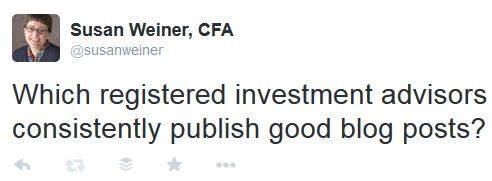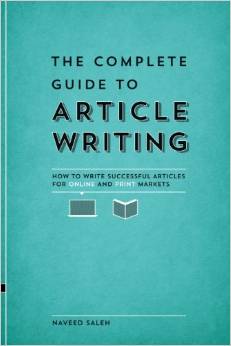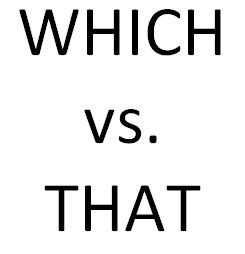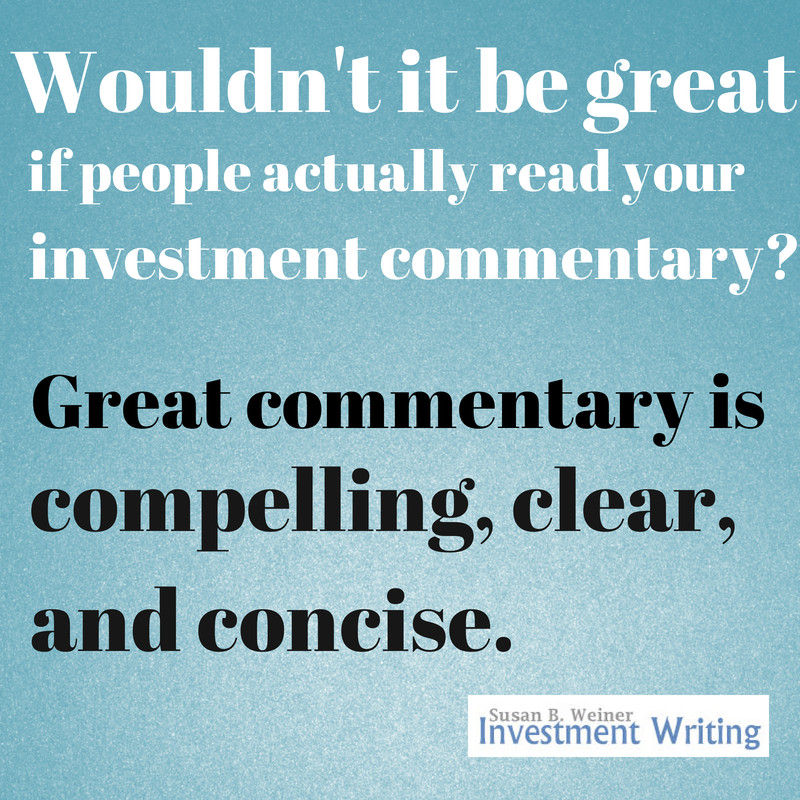RIA blogs recommended by my Twitter friends
Looking for good blogs by registered investment advisors or financial advisors? An impromptu Twitter exchange in February yielded the following recommendations, with thanks to @QuonWarrene for providing the first reply to my question: Bason Asset Management, written by James Osborne, @BasonAsset Beacon Wealthcare, written by Sam Bass, @Beaconwc Cheaply Seeking Fitness, written by Nathan Gehring, […]
Should you link to others in your blog?
If your blog focuses solely on your own content, perhaps it’s time to change. Consider incorporating links to other people’s content. High quality links reflect positively on you. “…The ability to aggregate really strong links helps bloggers’ credibility,” as Sara Quinn says in Naveed Saleh’s The Complete Guide To Article Writing. A section of Saleh’s […]
That vs. which: Which is right?
Writers often use “which” when they should use “that.” The reverse is also true. It took me a while to learn this myself. This post offers some guidance on your choices. The “That” rule “That” is for essential clauses. The sentence doesn’t make sense without the clause. Take a sentence like the following: Inflation that […]
Should your investment commentary be different?
“Should your investment commentary present a distinctive point of view?” That’s the great question posed by a participant in one of my presentations on “How To Write Investment Commentary People Will Read.” My answer? It depends. What is the distinctive point of view? If a distinctive point of view means ideas that hold their own […]
What Napoleon’s first battle can teach writers
Imagination is a powerful source of story ideas. This is what a picture of Napoleon Bonaparte’s first battle made me think when I visited the Bonaparte home on the French island of Corsica. And it can help you when you write. Do you know what is portrayed in “Napoleon’s First Battle”? A snowball fight. It’s […]





